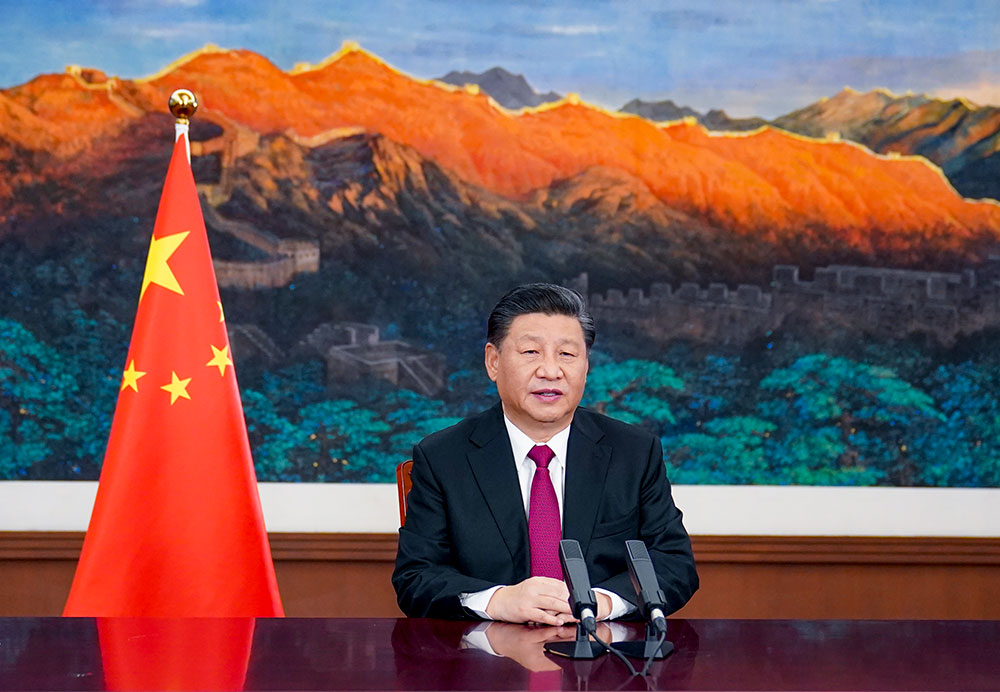Uphold multilateralism in stormy times


In an era fraught with challenges and risks, the whole world is struggling to find an efficient way to tackle the rising tide of global problems and forge a more stable and prosperous future.
At the World Economic Forum (WEF) virtual event of the Davos Agenda, Chinese President Xi Jinping offered a solution. He elaborated on his vision on what kind of multilateralism the world really needs in the new era and how to avoid multilateralism being used as the pretext for unilateral acts.
Xi's answer has arrived at a critical moment when the world community is bewildered by what will come following the still-raging pandemic, and how humanity should respond to a raft of pressing global challenges.
After infecting nearly 100 million and killing more than 2 million people worldwide, the coronavirus is still spreading at a stunning speed and continues to inflict massive loss on the world economy. Worse still, the rising protectionism, unilateralism and bullying practices have severely disrupted international efforts in shoring up global recovery.
Under such circumstances, countries across the world need to stay committed to international law and rules that have been jointly formulated and widely accepted by the global community.
From the four purposes and seven principles enshrined in the UN Charter to the Five Principles of Peaceful Coexistence, those guidelines should serve as the basic norms governing state-to-state relations and their authority should be well preserved. Any practice of exercising double standards or applying international rule of law in a selective way is a departure from the nature of genuine multilateralism.
Meanwhile, the international community needs to adhere to the spirit of extensive consultation. That means global affairs should be jointly addressed through everyone working together, instead of being dominated by just one or a handful of major powers.
Emerging economies and developing countries, which account for the majority of the world population and have made growing contributions to the global growth, should be given stronger representation on the world stage and more opportunities to be listened to.
Given the gap between the rich and the poor, the international community should provide necessary support for developing countries and safeguard their legitimate rights of development. In the "Global Risks Report 2021" last week, the WEF warned of the increasing disparities and social fragmentation due to the pandemic.
What's more, the world needs to maintain an open and inclusive attitude and firmly uphold the philosophy of win-win cooperation so as to achieve common development and prosperity for the interests of all. As President Xi proposed in his Monday speech, differences in history, culture and social system should not be an excuse for antagonism or confrontation, but rather an incentive for cooperation.
In the economic field, an open, transparent, inclusive, rule-based and non-discriminatory multilateral trading regime is essential to expand the global market, keep the global industrial and supply chains running steadily and boost high-quality and sustainable development. Any attempt to pursue "de-globalization" or any clamor for "economic decoupling" will benefit no one.
Last but not least, to uphold multilateralism in the new era, countries across the world need to work together to reform global governance in line with the call of the times.
The roaring pandemic has revealed once again that the evolution of the global governance system lags far behind the transformations unfolding in the international community. The human race, to have a better future, needs to seize every minute to make it keep pace with the times.
China, as a responsible major country, has been actively engaged in global cooperation to improve global governance so that the world community as a whole can better handle such global challenges as climate change and the pandemic.
Beijing will continue to work with the rest of the world to promote common development and preserve the international order that can serve the common interests of all.
In an age overshadowed by crises and uncertainties, multilateralism will shine as a torch that can light up humanity's way towards a peaceful, prosperous and shared future. And it is the human race's task to hold this torch high, and hold it firm together.

































